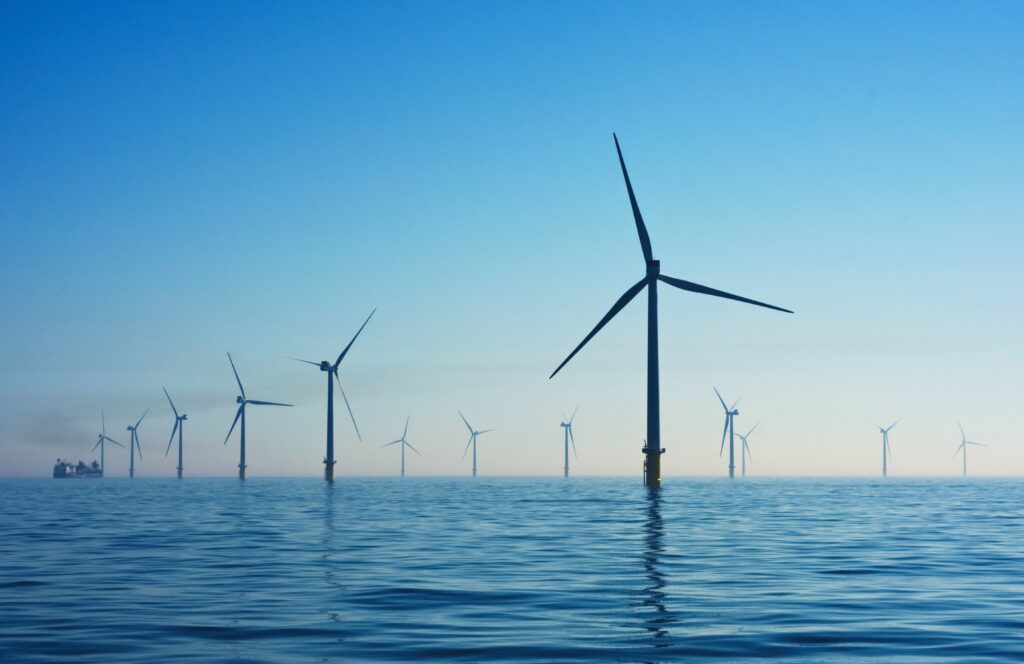As another summer passes, the evidence of climate change continues to scar our community. From the intense forest fires in B.C¹. and widespread evacuations in the North², to the heatwaves in Southern Europe³ and unprecedented flooding in California’s desert⁴, the destruction and disruption of a warming world is crystal clear.
For many people watching the news, climate change — and the sense that things are spiraling out of control — is cause for great angst. And while urgent action is needed by governments and businesses, there’s a vital role we can all play too. And it’s not just about buying an electric vehicle or boosting our efforts to recycle. Today, anybody with a financial plan that includes investments for retirement or their estate can make proactive choices to invest in a more impactful and sustainable manner.
Determining where you are on the sustainable investing spectrum⁵ enables you to make smart investment decisions that align with your values AND reduce our collective footprint. And if you’re looking to make a net-positive impact on this critical issue (something Genus tracks with its Net Impact Score⁶), you can support innovative companies that are making a meaningful difference in the fight against climate change. Here’s how.
Start by divesting of those doing harm
First and foremost, a sustainable investment strategy is focused on decreasing the negative impact of any portfolio and then increasing the positive impact, according to Mike Thiessen, Chief Sustainability Officer at Genus. This can be achieved in one of two ways. The first is by divesting from companies engaged in harmful activities — such as fossil-fuel production or distribution. The second is engaging companies to reduce their harmful activities.
Many investors passionate about the environment “wouldn’t want to be holding oil and gas companies, even if they can engage them,” says Thiessen — so divestment is typically their chosen path. At Genus, there are a variety of fossil free and impact funds that allow investors to specifically exclude fossil fuel producers (as well as those companies tied to the military, weapons, tobacco, junk food and factory farming). This year, says Thiessen, Genus has expanded its divestment approach to exclude financial institutions — namely the top 10% of global oil-and-gas funders — supporting the growth of fossil fuels.

For the individual, this has three clear benefits. One: there’s the satisfaction of knowing you’re not contributing to the climate crisis through your investments. Two: you can claim you’re reducing your carbon footprint, since you essentially “own” any emissions from the companies in your portfolio. And three: you are changing market dynamics. “We’ve seen this already in the bond market,” explains Thiessen. “There’s really high demand for green bonds now — and much less of a demand for bonds in oil and gas. By divesting, you’re pulling money out of the market and making it harder for those companies to raise capital.”
Use your shareholder power to engage
While divestment is one way to take climate action, engaging with corporations⁷ is another strategy for many investors — especially those who see the value of influencing a sector, such as energy, which remains a huge part of our economy⁸.
Engaging refers to using your power as a shareholder to influence decisions made by the company. Genus does this through an organization called SHARE – the Shareholder Association for Research and Education. SHARE works with a collective of investors, giving them leverage to influence corporate decision-making. With input from impact investors like Genus, SHARE drafts, files and votes on shareholder proposals, and sometimes meets with company management to discuss areas of interest.
“This year, we’ve been engaging with oil and gas companies particularly about their controls around methane, because methane is much worse than carbon for the environment,” says Thiessen. “And we’re also looking at political funding disclosures, because a lot of companies are giving to political organizations or candidates in order to lower regulations around oil and gas. We want companies to have to disclose that.”
Genus is also engaging with financial institutions to get them to disclose what they have on their loan books — which is important not just from a values perspective but also from a risk perspective, says Thiessen: “If we think oil and gas companies aren’t going to be doing well over the next 20 years, then do we really want to be giving them a 20-year loan?”

Celebrate the wins – big and small
While there is much more that can and should be done to address climate change, those who work in the environmental space say it’s important to claim victories⁹ where we can. And there’s little doubt that some big wins are happening at a global scale.
For example, in August, New Zealand’s government agreed to partner¹⁰ with New York investment giant Blackrock to transform its tiny island nation into a net-zero producer. The goal is to use Blackrock’s ESG investment (over $1 billion dollars) to make New Zealand one of the only countries in the world to have an electrical grid run entirely from renewable energy.
But even without trillions of dollars¹¹ to invest, you can still make a difference. Genus has a variety of companies in its holdings that are having a demonstrable impact on the climate crisis right now. These include a German-based solar manufacturer, SMA Solar; a Spanish solar utility company called Solaria; and Acuity Brands, which produces energy-efficient smart lighting and building management systems. Each of these companies is having a net-positive impact on reducing emissions in some of the hardest hit corners of the globe.
While there’s little doubt that summers (indeed, all seasons) will continue to produce extreme weather for years to come, a brighter forecast is possible with coordinated action: from government, from business, and from individual investors who are committed to using their money (and voices) to drive innovation and change.
Interested in exploring how you can make an impact on climate change with your investments? Contact a Genus advisor to get started.
References
- Number of Okanagan homes destroyed or damaged by wildfire rises to 189 | CBC News (2023) CBCnews. Available at: https://www.cbc.ca/news/canada/british-columbia/bc-wildfires-august-28-2023-1.6949509 (Accessed: 19 September 2023).
- Ljunggren, D. (2023) Canada wildfire: all 20,000 Yellowknife residents evacuating, Reuters. Available at: https://www.reuters.com/world/americas/canada-wildfires-crews-battle-stop-blaze-yellowknife-evacuates-2023-08-17/ (Accessed: 19 September 2023).
- The European heatwave of July 2023 in a longer-term context (no date) Home. Available at: https://climate.copernicus.eu/european-heatwave-july-2023-longer-term-context (Accessed: 19 September 2023).
- Video, pictures of Hilary aftermath in Palm Springs show unprecedented flooding and rain damage from storm (2023) CBS News. Available at: https://www.cbsnews.com/news/tropical-storm-hilary-palm-springs-california-flooding-video-images/ (Accessed: 19 September 2023).
- (2022) Where Am I on the Impact Investing Spectrum?, Genus. Available at: https://genuscap.com/where-am-i-on-the-impact-investing-spectrum/ (Accessed: 19 September 2023).
- ALL PORTFOLIOS MAKE AN IMPACT– IS YOURS POSITIVE OR NEGATIVE? Available at: https://genuscap.com/wp-content/uploads/2020/05/GenusFossil_ImpactReport_Print-pdf-UPDATE-E.pdf (Accessed: 19 September 2023).
- (2023) How Shareholder Engagement Works to Keep Companies Accountable to Investors, Genus. Available at: https://genuscap.com/how-shareholder-engagement-works/ (Accessed: 19 September 2023).
- Canada, N.R. (2022) Key energy, economic, and environmental indicators. Available at: https://natural-resources.canada.ca/science-and-data/data-and-analysis/energy-data-and-analysis/energy-facts/key-energy-economic-and-environmental-indicators/23926 (Accessed: 19 September 2023).
- Turner, C. (2023) Opinion: The difficult necessity of claiming climate victories, The Globe and Mail. Available at: https://www.theglobeandmail.com/opinion/article-the-difficult-necessity-of-claiming-climate-victories/ (Accessed: 19 September 2023).
- CityNews. Available at: https://toronto.citynews.ca/2023/08/08/new-zealand-is-partnering-with-blackrock-in-aim-to-reach-100-renewable-electricity/ (Accessed: 19 September 2023).
- Rees, K. (2023) BlackRock Assets to Top $15 Trillion in Five Years, Morgan Stanley Analyst Says, Bloomberg.com. Available at: https://www.bloomberg.com/news/articles/2023-04-17/blackrock-assets-to-top-15-trillion-in-five-years-analyst-says#xj4y7vzkg (Accessed: 19 September 2023).











